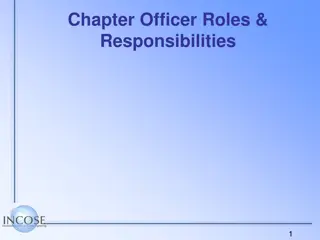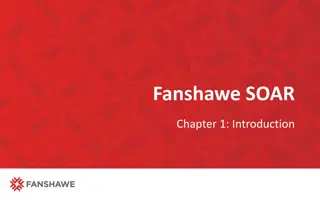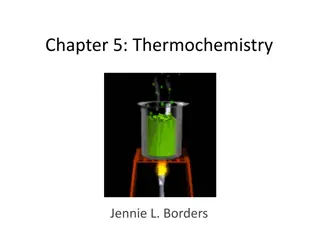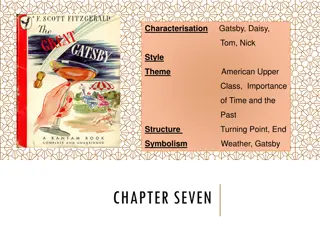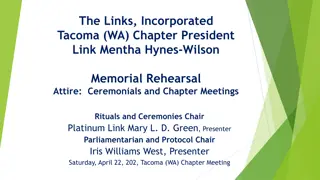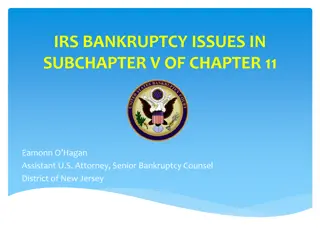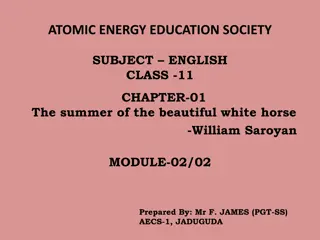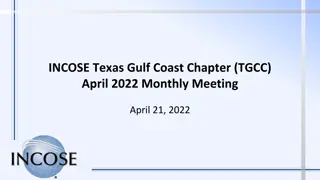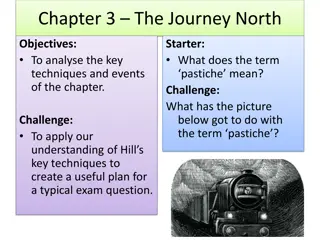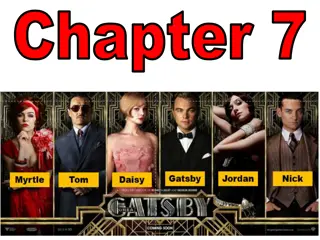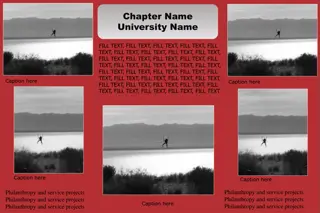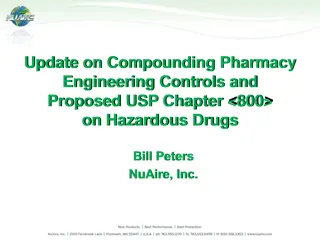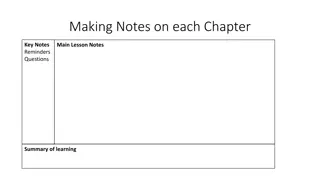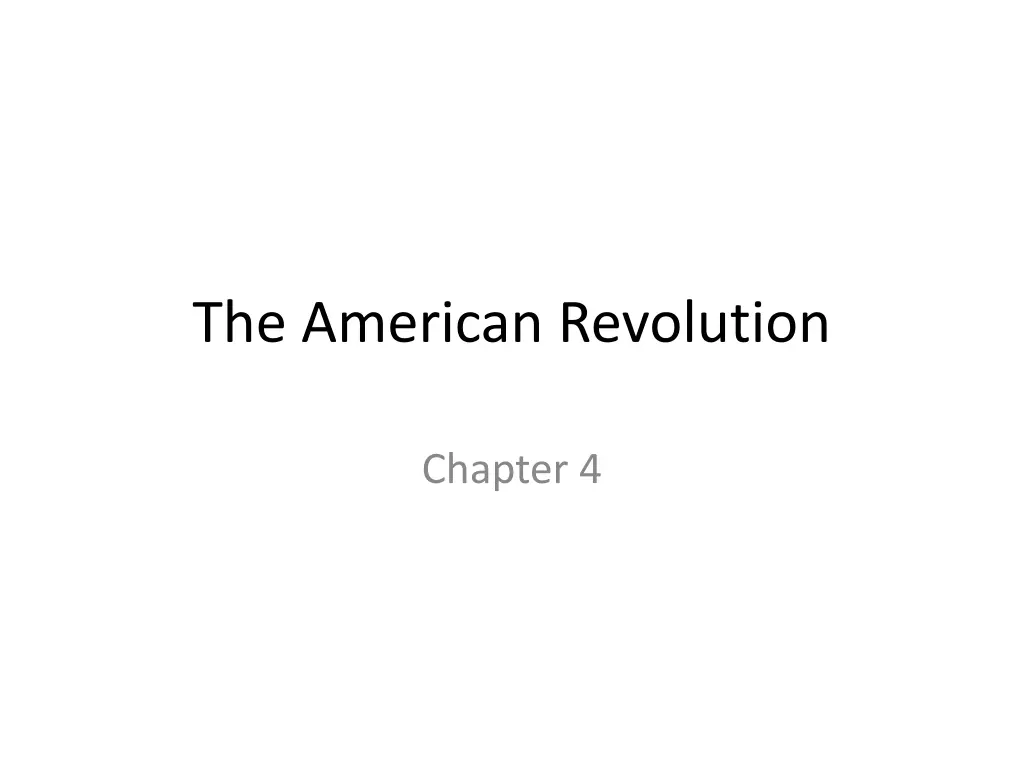
Causes of the American Revolution: New Laws, Stamp Act, Taxation Without Representation
Explore the causes of the American Revolution including new laws, the Stamp Act, and the issue of taxation without representation. Learn about significant events such as the Sons of Liberty, Townshend Acts, Boston Massacre, Boston Tea Party, and the Intolerable Acts that led to the revolution.
Download Presentation

Please find below an Image/Link to download the presentation.
The content on the website is provided AS IS for your information and personal use only. It may not be sold, licensed, or shared on other websites without obtaining consent from the author. If you encounter any issues during the download, it is possible that the publisher has removed the file from their server.
You are allowed to download the files provided on this website for personal or commercial use, subject to the condition that they are used lawfully. All files are the property of their respective owners.
The content on the website is provided AS IS for your information and personal use only. It may not be sold, licensed, or shared on other websites without obtaining consent from the author.
E N D
Presentation Transcript
The American Revolution Chapter 4
Causes of the Revolution Section 1
New Laws Sugar Act Cut tax on imported MOLASSES (sugar) in half Quartering (housing) Act Colonists must provide shelter to British troops Hoped more people would buy sugar Hobo walking, with bag on pole Animated Clipart
Stamp Act 1765 Tax on all PAPER goods (newspaper, playing cards, books) Tax was to pay for British troops to be in America British were paying this tax since 1694
Taxation w/o Representation Colonists believe they should only pay taxes if they have members on PARLIAMENT (govt.) Britain thought it ONLY people living in the mother country (England) should be included in govt. Becomes the SLOGAN of the Revolution
Sons of Liberty Group that sets up a BOYCOTT against British goods Sam Adams is their leader Threaten to kill tax collectors if they did not leave Parliament repeals (removes) Stamp Act in 1766
Townshend Acts 1767 Parliament places duty (tax) on GLASS and TEA Glass is containers used for most things Tea is the most common drink
Boston Massacre Britain sends troops to Boston to put down resistance British soldiers fire at mob killing 5 colonists including Crispus Attucks (1st Casualty) As a result Townshend Acts repealed, but they did keep a tax on tea as a reminder of authority
Boston Tea Party (1773) Colonists were smuggling tea to avoid paying taxes Colonists board British ships dressed as Natives Dumped out all Tea on 3 ships into the harbor Tea Bag Swinging Animated Clipart
Intolerable Acts Closes Boston Harbor /unemployment rises Consequence (punishment) for the Boston Tea Party Nearly eliminates self govt. in Boston
1st Continental Congress 1. Renewed BOYCOTT of British goods 2. Colonists to ARM themselves 3. Send list of grievances (problems) to the King 4. Vow to meet again in November
Carpenters Hall (Built 1770) http://upload.wikimedia.org/wikipedia/commons/thumb/6/63/Carpenters_Hall_North_%28front%29_facade_HABS_PA%2C51-PHILA_229-4.jpg/250px-Carpenters_Hall_North_%28front%29_facade_HABS_PA%2C51-PHILA_229-4.jpg
Section 1 Review: 1. Describe the QUARTERING and SUGAR Acts. 2.Who were the SONS of LIBERTY? Their leader? 3. What did the TOWNSHEND ACT tax? 4. What event led to the INTOLERABLE ACTS?
War Begins! Section 2
Common Sense Written by Thomas Paine He believed that even the uneducated could understand the colonists conflicts Persuaded even those against the revolution at 1st to support a violent revolution (war)
Natural Rights John Locke s theory Claimed people were given basic rights b/c they were born human NOT b/c a king gave them rights Ex. Life, Liberty, Pursuit of Happiness
Lexington and Concord Paul Revere warns Patriots that the British left Boston and were marching to Concord Patriots military supplies were stored here 4,000 Patriots meet them Result: British Loss / guns are moved
2nd Continental Congress Draft a Declaration of Independence Organize the military for war Command of army given to GEORGE WASHINGTON of VA
Drafting a Declaration 1. Preamble (Introduction) 2. Declaration of Rights Stated that humans have NATURAL RIGHTS Explanation why the colonies need independence
3. Complaints 4. Resolution (Conclusion) Long list of complaints against King George The United Colonies should be free and independent
Declaration Adopted July 4th, 1776 Independence Day 350px-Declaration_independence War must still be fought 4th of July Text and Flag Animated Clipart
Section 2 Review: 1. Who wrote COMMON SENSE? 2. What are NATURAL RIGHTS? 3. What were 2 things the 2nd Continental Congress accomplished? 4. What are the 4 parts of the Dec. of Ind.?
Turning Points of the War Section 3
Battle of Bunker Hill (June 1775) Americans occupy 2 hills in Boston British launch 2 assaults that fail Patriots run out of ammunition and are forced to retreat Cannon Facing Forward Shooting Animated Clipart
Bunker Hill cont. British victory at tremendous cost 1,100 of 2,400 soldiers were dead or wounded Patriots (Americans) fewer than 400
British Strengths Weaknesses Well equipped/trained Unpopular / expensive war ($$$) #1 navy in the world Fighting in another territory 50k loyalists in the colonies 30k mercenaries
Americans Weaknesses Strengths Lacked supplies (Guns, uniforms, ammunition) Fought on their own territory (knew the land) Lacked effective fighting force (trained people) Fighting for a reason (independence)
Nathan Hale Spy for the Continental Army Obtains information, but is caught Hanged for treason. I only regret that I have but one life to give for MY country
Battle of Trenton Washington decides to fight during the winter Xmas night 1776 launches offensive in Trenton Captures 1,400 mercenaries, takes only 5 casualties Fife and Drum Corps Parading Animated Clipart
Valley Forge (PA) Washington s winter camp 1/3 of 10k troops had no shoes or coat Forced to eat water and flour mixed together SMALL POX spreads around the camp
Victory at Saratoga October 17, 1777 American General Horatio Gates surrounds a large British army around Saratoga, NY Turning point of the war Decisive American victory
Help From Abroad British defeat at Saratoga shows that the Patriots (Americans) could win the war Encourages the French, and they sign an alliance with the Americans They give supplies, money, and troops
Section 3 Review: 1. Why does America lose at BUNKER HILL? 2. List 2 strengths and weakness of BRITAIN and AMERICA. 3. Describe the conditions at VALLEY FORGE. 4. What Battle is known as the TURNING POINT of the war?
Wars End Section 4
Financial Hardships $$$ Congress asked colonies to provide money, supplies, troops Without taxes it was hard to get these Mostly get only donations
Disruption of Trade British navy blockaded Atlantic coast No imports could get in / basic necessities were scarce Ex. Bushel of corn rises from $1 to $80 in one year
British Retreats Cowpens SC Guilford Courthouse NC Led by Daniel Morgan Led by Nathanael Greene Inflict heavy losses on British British retreat to a trap in Virginia
Victory at Yorktown (VA) Last battle of war American and French artillery (cannons) pound Yorktown Outnumber the British 2 to 1 Realizing defeat Cornwallis Surrenders to Washington on October 19,1781
Treaty of Paris 1783 1. Independence of the U.S 2. Sets new American boundaries 3. Loyalists were allowed to stay in U.S 4. All POW s on both sides released
Changes for Women See little changes Still property of males Could NOT own property Suffrage (voting) 137 years away
African Americans Emancipated (freed in north) South bans MANUMISSION (freeing slaves) in Southern states Eventually will lead to a major DIVIDE in the country (Civil War in 1861-1865)
Section 4 Review: 1. What hardships did the Colonists face? 2. Why is YORKTOWN important? 3. What were 2 parts of the treaty of PARIS? 4. How did life change for WOMEN after the war?


